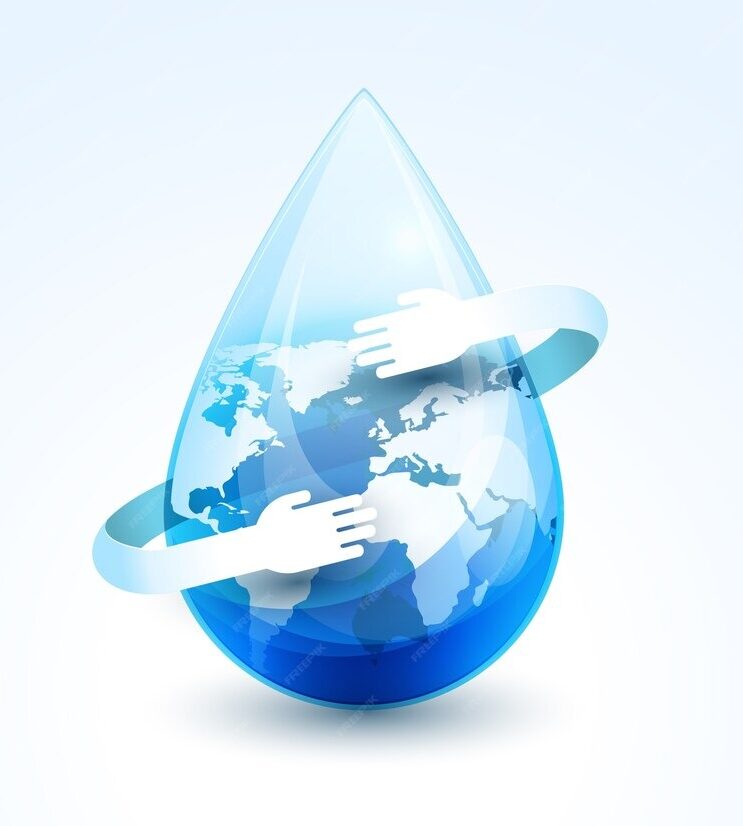
In the realm of climate change negotiations, amidst the fervour surrounding renewable energy, carbon emissions, and deforestation, one essential element often finds itself relegated to the sidelines: Water. Despite being a fundamental component of life and ecosystems, water has yet to claim its deserved central place at the negotiation table. However, recent developments, such as the Azerbaijan committee’s strides in gender representation for COP29 raises hopes for the
inclusion of other similarly overlooked issues, among them the centrality of water as a theme.
Water scarcity, pollution, and access disparities are exacerbating the effects of climate change on communities worldwide. From drought-stricken regions to flood-prone areas, the impacts of water-related challenges are undeniable. Water also plays a central role when it comes to Climate Change mitigation through its regulation of temperature, precipitation patterns, and carbon absorption in ecosystems such as wetlands and forests. Yet, discussions at major climate
summits frequently overlook the dual role of water: as a resource that aggravated the impacts of climate change as well as a potential tool for mitigating its effects.
It is disheartening that even in 2024, the oversight of women’s participation in critical international discussions, such as COP29 in Azerbaijan, remains all too common. Yet, the heartening response from the global community in addressing this issue demonstrates the power of collective advocacy. The inclusion of more women in leadership positions within climate negotiations is a positive step towards diverse perspectives and comprehensive solutions. Similarly, recognizing the crucial role of water in climate resilience and adaptation is imperative. Therefore, there’s an urgent need for the voices of the water community to demand inclusion of water as a central theme at COP29. After all, water is indispensable for life!
Water scarcity amplifies social inequalities, compromises food security, and threatens biodiversity. Ignoring water in climate talks is akin to addressing symptoms while neglecting the root cause of a problem.
It’s time for COP and other international forums to recognize the intrinsic importance of water in climate change negotiations and respond accordingly. Just as the call for gender inclusivity was heard and acted upon, there rises hope for a similarly positive response to prioritizing water in shaping the future of our planet.
The urgency to prioritize water in climate negotiations is also underscored by its interconnectedness with various aspects of sustainability. Sustainable development goals, such as clean water and sanitation (SDG 6), climate action (SDG 13), and gender equality (SDG 5),are intrinsically linked through water management.
To truly address the complexities of climate change, water must be elevated as a central theme in COP discussions. This entails integrating water-related considerations into mitigation and adaptation strategies, allocating resources for water infrastructure, and fostering international cooperation for equitable access to water resources.
The road to mainstreaming water in climate negotiations may be long, but it is a journey worth undertaking. Just as the recognition of women’s leadership roles is gradually gaining traction, so too must the importance of water in shaping climate policies. As the global community strives for a sustainable future, let us ensure that water earns its rightful place at the forefront of climate change discussions.
